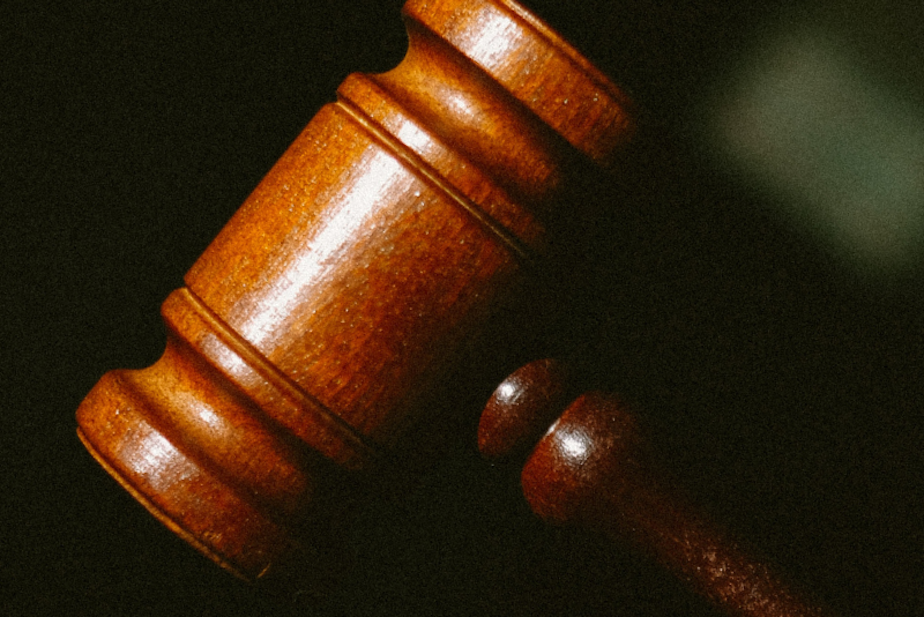Community court is ending in Seattle. What does that mean for defendants?

Community court will soon be a thing of the past in Seattle.
The diversion program gives people accused of low-level, non-violent misdemeanors a chance to get their charges dismissed. If they qualify and agree to follow the program, they get connected with support services.
There have been several versions of the community court model in Seattle over the last dozen years.
But City Attorney Ann Davison now says the partnership is over.
On Friday, community court judges received a letter from the city attorney’s office telling them that the city would no longer participate in community court.
Soundside host Libby Denkmann talked to PubliCola editor Erica C. Barnett, who broke the story, about how this decision came to be, and what it means for defendants.
Sponsored
Barnett said the letter Davison's office sent to community court judges represents the end of a long battle over the program.
"The letter essentially said that the city attorney's office considers the court to be a failure," Barnett said. "They said that people are not showing up to court for their first appearances, and they said that [people] aren't being required to do the community service that the city attorney's office thinks they ought to be required to do."
In the letter to community court judges, the city attorney's office stated that only 22% of defendants completed the community court's minimal requirements to graduate, which include an assessment with a pre-trial service counselor and a 90-minute life skills class.
But the failure-to-appear rate for community court isn't out of line with what municipal court judges see in mainstream court, according to Barnett.
"Mainstream court, which is where defendants will go now also has an incredibly low rate of people showing up for their first appearance," Barnett said. "That's because, a lot of times you're talking about people who are homeless people, who are hard to reach, or people who have other problems that make it very hard for them to, you know, sort of live by a schedule."
Sponsored
Judge Damon Shadid, who established and oversaw Seattle's community court program, said the failure-to-appear rate in Seattle Municipal Court has always been "extraordinarily high" — around 70-80%, and that remained unchanged with community court.
But the data the city attorney's office cited in their letter draws from a defendant pool before they even entered community court.
"We were setting the cases onto a community court calendar where the person would appear to be arraigned, to plead not guilty, and then decide if they wanted to enter community court or if they wanted to enter mainstream court," Shadid said. "Those people were not participants in community court. And the failure-to-appear rate of 70-80% remained unchanged from before community court happened, during community court, and I expect after community court as well."
Shadid agreed that the failure-to-appear rate needs to be worked on. But he said that, at the end of the day, it has nothing to do with community court.
Natalie Walton-Anderson, the criminal division chief for the Seattle City Attorney's Office, authored the letter that was sent to community court judges informing them about the end of the city's participation in community court. She said she's also disappointed at the collapse of the partnership, but argued the program just wasn't working as promised.
Sponsored
"The court was functioning as a catch-all for cases. It did not provide the immediacy of services as it was intended. And it was not resolving cases anywhere near the time set," Walton-Anderson said. "The initial tenets for the Seattle Community Court project agreement were immediacy, the intent to resolve cases within 60 days of arraignment to quickly connect participants to services. And ultimately that wasn't happening."
Walton-Anderson said the city attorney's office will now work with the court and defense to resolve cases that are currently moving through community court, and a number of cases will be dismissed, especially cases that predate Jan. 1, 2022.
"If we have a case that's been languishing in the system for 32 months, where is the benefit of keeping that case existing? Obviously, the court wasn't able, community court was not able to engage that person in services to get them to a point of completion," Walton-Anderson said. "And ultimately, while dismissal may seem drastic, the reality is there's no appreciable difference between the dismissal and the absence of consequences for individuals and community court as it's currently constituted."
EDITOR'S NOTE: This story has been edited to correct the misspelling of Seattle City Attorney Ann Davison's last name.
Listen to the full segment by clicking the play button at the top of this story.





